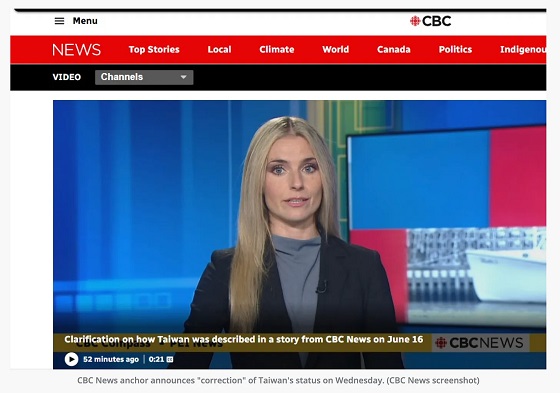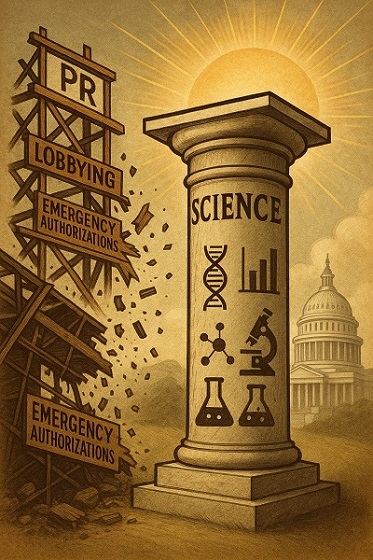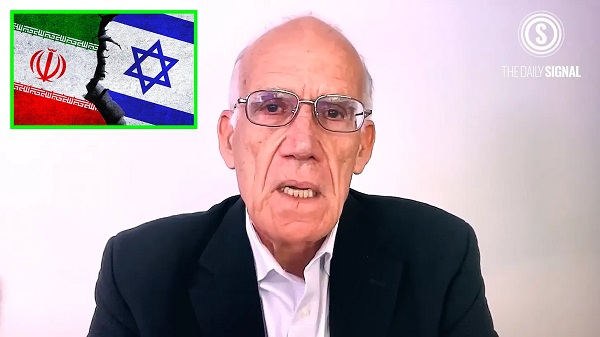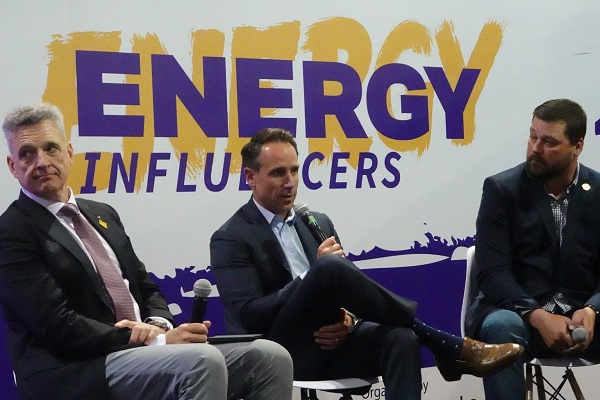International
Taiwan Criticizes CBC Correction on United Front Buddhist Land Story, Citing PRC Political Pressure

Taiwan’s Foreign Ministry warns that CBC’s editorial change “undermines the essence of press freedom” and reflects growing Chinese pressure on international media.
Canada’s state broadcaster, CBC, is facing diplomatic criticism from Taiwan after issuing a controversial correction to an explosive story regarding Chinese influence via foreign investment in Prince Edward Island—raising new questions about whether Chinese government pressure is compromising Canadian press freedom and influencing media coverage of foreign interference.
On June 14, CBC/Radio-Canada published a report on alleged ties between Bliss and Wisdom, a Buddhist group with growing land holdings on Prince Edward Island, and the Chinese Communist Party’s United Front Work Department. The report—based in part on findings from The Bureau’s contributor Garry Clement—noted deep concerns from PEI residents about the group’s agricultural land acquisitions and its alleged links to Beijing, including its reported advocacy for China’s annexation of Taiwan.
It highlighted a high-ranking monk from Taiwan who traveled “between his home country, Prince Edward Island, and China” in 2023 for ideological outreach, at the invitation of a Buddhist organization affiliated with the United Front Work Department—the Chinese Communist Party’s covert foreign interference arm.
But on June 17, CBC issued a correction: “In that story, the reporter said Taiwan is a country that China is threatening to invade. In fact, Taiwan is a self-governing island, and there is dispute around who controls it.” No explanation was provided for the change.
That revision quickly sparked backlash in Taipei. In a statement to Taiwan News, Taiwan’s Ministry of Foreign Affairs (MOFA) said it was “regretful and disappointed” to see international media “engage in self-censorship or deliberately avoid using the term ‘country’ to refer to Taiwan due to political pressure from China or concerns about Beijing’s stance.” MOFA reportedly reiterated that Taiwan “is a sovereign and independent country, and is not subordinate to the People’s Republic of China,” and urged foreign media to uphold “objectivity and fairness,” warning that compromise on coverage “undermines the essence of press freedom” and distorts Taiwan’s international status.
CBC did not respond to a request for comment from Taiwan News.
CBC is funded by the federal government and mandated by the Broadcasting Act to serve the public interest with independence, journalistic integrity, and balanced coverage. Taiwan’s concerns, delivered through its Ministry of Foreign Affairs, suggest a de facto state-to-state issue.
The CBC correction was also flagged Thursday by Canadian diaspora advocacy group Friends of Hong Kong, which has documented suspected United Front influence in Canada, including media pressure campaigns. “So disappointing for Canadian media: this is a politically-charged correction, due to either self-censorship or external intervention, and wilfully blind to the reality of #Taiwan the island state,” the group posted to X, calling attention to CBC’s correction notice.
The controversial CBC report was informed by a parallel investigation led by Garry Clement—a former RCMP proceeds-of-crime director—along with former CSIS Asia-Pacific chief Michel Juneau-Katsuya and publisher Dean Baxendale. The three co-authors of the forthcoming book Canada Under Siege spent the past year examining Bliss and Wisdom’s land acquisitions, foreign financial inflows, and political influence on Prince Edward Island. In his column for The Bureau, Clement warned that the RCMP’s refusal to investigate the group reflects “a chilling portrait of political complacency” and asserted that Canadian democracy is being degraded not by coups or force, but by “the quiet neglect of responsibility.”
CBC has not acknowledged external pressure behind the correction, but The Bureau has previously documented similar interference. In November 2024, China’s Consul General Yang Shu directly pressured Vancouver Mayor Ken Sim after he invited Taiwan’s representative to a civic luncheon, stating: “This was inappropriate… The Consulate General of the People’s Republic of China is the only consular mission representing China in Vancouver.” The PRC expressed dissatisfaction with the participation of Taiwan’s envoy in the B.C. Consular Corps luncheon—despite established diplomatic practice allowing their attendance.
Given this backdrop, it is plausible—though not confirmed—that CBC received similar behind-the-scenes pressure following its original PEI report.
That concern finds further grounding in evidence tabled before Canada’s Hogue Commission and leaked intelligence reviewed by The Bureau.
A leaked October 2022 CSIS report analyzed by The Bureau found that China’s election interference and political influence in Canada have been enabled by Beijing’s covert “takeover” of Chinese-language media, along with sophisticated, massively funded schemes targeting mainstream outlets and seeking to control “key media entities,” according to intelligence documents.
These clandestine operations have involved threats against journalists, the documents state, as well as inducements—such as benefits offered by Vancouver’s Chinese Consulate to cultivate “key editors, producers, and high-ranking managers.”
Among the declassified top-secret records presented to the Hogue Commission by diaspora-group participant Gabriel Yiu is a July 2023 Canadian intelligence report titled “CHINA: Domination of Chinese-Language Media in Canada Poses National Security Threats.” The document details systemic Chinese Communist Party influence over Chinese-language media outlets in Canada.
“Communist Party of China (CPC)-friendly narratives inundate Chinese-language media in Canada,” it says. “Censorship (including self-censorship) is pervasive, and alternative voices are few or marginalized in mainstream Chinese-language media. This includes both traditional media, such as newspapers, and digital platforms like WeChat.”
In a column for The Bureau, Yiu wrote, “I believe the Canadian intelligence agency’s assessment is accurate. From my own experience as a commentator since the 1990s, I have observed these shifts.” He also underscored key excerpts from the CSIS report:
- “The CPC’s strategy to control media operates on two fronts: narrative control and platform control. [redacted] overt and clandestine.”
- “The CPC limits opportunities for dissenting voices [redacted], provides economic incentives [redacted], and fosters self-censorship [redacted].”
- “The CPC’s influence on Chinese-language media, shaping public opinion overseas, also supports other activities, including transnational repression and influencing electoral outcomes.”
The Bureau is a reader-supported publication.
To receive new posts and support my work, consider becoming a free or paid subscriber.
Invite your friends and earn rewards
Health
Kennedy sets a higher bar for pharmaceuticals: This is What Modernization Should Look Like

 James Lyons-Weiler
James Lyons-Weiler
What People, Universities, and Pharma Do Not Yet Understand About the Kennedy Regulatory Bar: It Signals the End of the Regulatory States of America.
Science must outlive the PR cycle.
Modernization, as used today by industry lobbyists and public health officials, often amounts to a euphemism for deregulation: fewer checks, less transparency, and faster product pipelines with fewer questions asked. In contrast, Secretary Robert F. Kennedy Jr.’s approach to public health modernization is actual modernization—where rigorous science, true accountability, and unwavering public safety form the non-negotiable baseline.
The Kennedy Regulatory Bar isn’t a buzzword, and it’s certainly not a rhetorical device. It’s an operating philosophy grounded in scientific integrity and public duty. For those who understand regulatory policy only as an obstacle to commercial throughput, the Kennedy Bar feels like a threat. But to those who understand what science is—a falsifiable, ethical, and reproducible method of discovering truth—it represents nothing less than the restoration of sanity.
Defining the Kennedy Regulatory Bar
Secretary Kennedy has made his expectations perfectly clear. In his own words:
“Journalists like yourself assume that vaccines are encountering the same kind of rigorous safety testing as other drugs, including multiyear double-blind placebo testing. But the fact is that vaccines don’t.”
— Interview, STAT News, Aug. 21, 2017
“By freeing [vaccine makers] from liability for negligence, the 1986 statute removed any incentive for these companies to make safe products. If we want safe and effective vaccines, we need to end the liability shield.”
— Press Statement in Support of HR 5816, Sept. 26, 2024
“Mr. Kennedy believes vaccination should be voluntary and based on informed consent. For consent to be truly informed, the underlying science must be unbiased and free from corporate influence.”
— Campaign FAQ – Vaccines, Kennedy24.com, Aug. 15, 2023
“My mission over the next 18 months… will be to end the corrupt merger of state and corporate power.”
— Campaign Announcement Speech, Boston, Apr. 19, 2023
These principles, articulated repeatedly by Sec. Kennedy across media interviews, press events, and official communications, form the foundation of what we now call the Kennedy Bar.
The Kennedy Regulatory Bar: Five Core Standards
Rigorous Science: Long-term, double-blind, placebo-controlled trials are the gold standard and must not be circumvented. This is but one example. All of biomedical science should be upgraded to highest standards.
Restored Liability: No blanket immunity for manufacturers; liability is essential to safety. This flies in the face of concerted efforts by Pharma to expand liability exemptions (e.g., PREP Act).
Transparency: All trial data must be made publicly available in machine-readable form—no redactions, no gatekeeping. Collins failed to enforce this, and the failure was noted.
Independent Oversight: Regulatory decisions must be made by individuals and boards free of industry conflicts of interest. This includes, but is not limited to, vaccines, drugs, devices, and procedures.
Informed Consent: Patients must receive full, truthful information about benefits and risks—without coercion or censorship, and their rights to free, prior, informed consent are absolute.
These are not radical ideas. They are what science used to be before it was rebranded as a partner to commerce.
Why “Banning the mRNA Vaccines” Isn’t Necessary—If the Regulatory State Is Fixed
Some critics ask: Why not just ban mRNA vaccines outright?
The question misunderstands both the Kennedy Bar and Secretary Kennedy’s governing philosophy. Banning an entire class of biomedical products by executive fiat would mirror the very authoritarianism that corrupted the regulatory state in the first place. The goal is not to replace one top-down mandate with another—it is to restore bottom-up scientific validity, where products succeed or fail based on their actual merit, risk profile, and necessity.
Under the Kennedy Bar, no product—mRNA or otherwise—can bypass the full burden of proof:
- Did it go through long-term, double-blind, placebo-controlled trials?
- Were all adverse events transparently reported and analyzed?
- Was there independent oversight?
- Can the public access the raw data?
- Was informed consent meaningfully obtained?
If the answer is no—as it has been for many mRNA formulations—then the product simply fails to meet the regulatory standard. No ban is needed. Reality disqualifies it.
The Kennedy strategy is structural, not performative. It focuses on building a regulatory ecosystem that is incapable of licensing unsafe or ineffective products. This is a stronger safeguard than any prohibition. Rather than banning, Kennedy’s approach makes bad science impossible to pass off as medicine.
Once transparency is non-negotiable…
Once liability is restored…
Once regulatory capture is dismantled…
Then any product built on hype, shortcuts, or undisclosed risks—whether mRNA or otherwise—will collapse under the weight of real scrutiny.
That is not censorship. That is civilization defending itself by enforcing its own standards.
Integration Over Isolation
What sets Kennedy’s approach apart is not only the bar he sets for scientific integrity, but it is obvious this is how he is implementing it across government. As Secretary of Health and Human Services, he is already working to integrate the work of all HHS agencies—CDC, NIH, FDA, CMS, HRSA, and others—into a coherent, collaborative ecosystem. No longer will one hand of government ignore the consequences of the other.
Where prior administrations tolerated bureaucratic silos and jurisdictional loopholes, Kennedy insists that scientific rigor be institutionalized—not merely idealized. Under his leadership, agencies are being asked to communicate better, share safety signals earlier, co-design surveillance systems, and synchronize risk communication strategies.
This is not just about stopping regulatory failure. It’s about building functional synergy between the very institutions tasked with protecting public health.
The Academy’s Crisis of Conscience
Many universities have not yet recognized that the Kennedy Bar creates a mirror they cannot easily turn away from. For decades, medical schools and public health departments have received lavish funding from pharmaceutical companies and government agencies with revolving doors. This arrangement has subtly—sometimes overtly—coerced researchers to conform to sponsor expectations, burying negative results and rewarding compliance with publication and promotion.
Secretary Kennedy has quietly changed the rules of engagement. Prestige will no longer in the place of principles. A new standard is emerging, and it doesn’t care what editorial board endorsed your work—it asks what you measured, how long you observed it, and who paid you to interpret it.
I recently gave a speech “How to Speak MAHA” to a collection of research administrators at midwestern state Universities. They did not grasp the reality that those Universities who are cheerleading their researchers to submit more, not fewer, grant proposals in response to calls for proposals to transform medicine will be scheduled for prestige and more funding. Good actors will be rewarded. Those obsessed with their bottom lines will have to find funding elsewhere. Those publishing in sketchy journals against the recommendations of HHS might suffer a ding in their grant scores.
The message from this administration is simple, and our universities now face a choice: modernize into true scientific integrity, or double down on performative consensus. The Kennedy Bar forces the question: Is your institution educating scientists—or training enablers? No grant is worth the erosion of public trust. No journal impact factor outweighs the duty to truth. The age of science as branding is over. The age of science as science—open, accountable, and rigorous—has returned.
The Industry’s Real Dilemma
Pharma does not fear Kennedy because he’s against innovation. They fear him because he demands real innovation—scientific advancements that can survive public scrutiny, not just regulatory maneuvering.
For decades, the vaccine industry has relied on two tricks: (1) measuring success through surrogate endpoints like antibody titers rather than clinical outcomes, and (2) conducting studies in silos—never long enough, never with full data access, and almost never with independent safety boards. This system has produced a torrent of marginally tested products with maximum immunity from liability and minimal transparency.
Under the Kennedy Bar, the era of “emergency forever” is over. The industry must either meet real scientific thresholds or lose the public’s trust—entirely. This is not punishment. It’s evolution. It’s the grown-up phase of medicine. A moment of maturation for a sector that has long preferred speed over scrutiny, revenue over rigor.
And it comes with a choice: evolve or… be revealed.
Outflanking the “Modernization” Rhetoric
The PR pivot has already begun. Corporate spokespeople and foundation-backed academics are working overtime to redefine “modernization” as “streamlining,” “accelerating,” or “expanding access.” But these are euphemisms for lowering standards, usually without public debate.
Kennedy’s modernization is not deregulation. It is re-regulation—the restoration of the scientific method, the demand for data, and the end of special pleading. His is not a revolution in tone, but in epistemology. He is not rebranding trust—he is rebuilding it.
Science Must Outlive the PR Cycle
Regulatory systems that abandon the scientific method for public relations will inevitably collapse. The people know. They have lived the adverse events. They have watched silence fall where transparency was promised. They’ve seen academic journals censor, media outlets spin, and regulators hedge their language to protect careers rather than lives.
The Kennedy Bar is not a barricade—it is a foundation stone. It does not prevent innovation. It ensures that innovation is real.
So to the regulators: Your authority does not come from secrecy—it comes from public trust.
To the industry: Your survival depends on the integrity of your products, not the slickness of your press kits and forward-looking statements.
And to the universities: Your legacy will not be measured in grants received, but in truths defended.
Those who come up to the bar will see not only translational success, but will also transformational success.
And they will sleep better at night.
Popular Rationalism is a reader-supported publication.
To receive new posts and support my work, consider becoming a free or paid subscriber.
Subscribe to Popular Rationalism.
And check out our awesome, in-depth, live full semester courses at IPAK-EDU. Hope to see you in class!
conflict
Victor Davis Hanson Makes a Disturbing Prediction About What Happens If Iran Survives

Amidst rough seas, you need a steady sailor.
Not just what’s happening, but what’s coming next.
“I think we’re going to see things that we haven’t seen in our lifetime in the Middle East,” he said.
This could go one of two ways, neither is small.
Victor Davis Hanson isn’t known for hyperbole. So when he opens with a warning like this, people pay attention:
“We are at an historic time in the Middle East,” he said.
“Never in our lifetimes have we been closer to a complete revolutionary fervor that gives promise of normalcy for the Middle East. And never have we been in more danger of seeing the entire region blow up.”
The paradox is striking.
Peace may be closer than ever, but so is total collapse.
And at the center of it all is the unfolding conflict between Iran and Israel, which Hanson called “surreal.”
Reflecting on the rapid collapse of Iran’s regional dominance, Hanson admitted that even a few years ago, this moment would have been unthinkable.
“If we had this conversation five years ago,” he said, “and I said to you, the Iranian nation that is huge compared to Israel, ten times the population, the Iranian nation has lost all control of the Houthi terrorists, and they are themselves neutered…”
He pointed to a chain reaction across the region: Iran’s proxy forces in Gaza and the West Bank have been neutralized. Hezbollah, once a feared military force, is now dormant.
“They’re gone as a Hamas, as a fighting force. The formidable, the terrifying Hezbollah cadres, they’re inert.”
The chaos in Syria, once a stronghold of Iranian influence, now seems to be working against Tehran.
“There is no more Syria, the Assad dynasty, the pro-Iranian, the Syria. It’s in chaos. But whatever the chaos is, seems to be anti-Iranian.”
The collapse is strategic, not just symbolic. Hanson noted that the so-called “Shia crescent” connecting Tehran to the Mediterranean is no longer intact.
“Lebanon is free of Iranian influence. So is Syria. Gaza, a de facto, will be.”
Even Russia, once a key ally, is no longer a player in the region.
“It’s tied down in Ukraine,” he said.
“Iran itself, the formidable powerhouse of the Middle East that evoked terror all over, has no defenses.”
Over the course of just five days, Israel has launched a targeted military campaign to dismantle Iran’s strategic infrastructure.
According to Hanson, the damage has been sweeping.
“They have dismantled all of the Iranian missile defenses. They have dismantled the terrorist hierarchy. They have dismantled the people who are responsible for the nuclear program.”
And yet, there’s risk.
“The Iranians have sent over 400 ballistic missiles and drones into Israel,” he said, “and 90 percent are stop. But that 10 percent gets through.”
Which brings us to the turning point.
All of this only matters if it ends with Iran’s theocracy on the brink of collapse.
If it doesn’t, everything that’s been gained could be erased.
“All of this chaos and all of this war will be for not if Iran’s theocracy emerges intact from this war.”
Even more dangerous, he added, would be a scenario in which the country’s nuclear infrastructure survives or can be quickly rebuilt.
That possibility has triggered one of the most urgent strategic questions on the table: Can Israel finish the job?
Or will it need help from the United States to strike Iran’s deeply buried nuclear facilities?
This is where things get complicated.
Under the “America First” foreign policy doctrine, Trump has been clear: no more forever wars, no more ground troops in the Middle East.
But Hanson argued that Trump’s actions tell a deeper story.
“I’m not an isolationist, I’m a Jacksonian,” he said, echoing what Trump might say.
“You should have known that when I took out Soleimani… when I took out Baghdadi… when I took out the Wagner Group.”
The message? Trump doesn’t go looking for wars. But when deterrence is at stake, he’s not afraid to act decisively.
Still, Hanson posed a chilling question: what if the Iranian regime survives?
“If this war should end with the Iranian regime intact and the elements of its nuclear program recoverable,” he warned, “then in some ways it will be all for naught.”
Despite Iran’s military losses, its media destruction and its isolated position, surviving such a coordinated strike could give it something even more powerful than weapons: perceived invincibility.
“It will be more like, oh my gosh, Iran survived everything that Israel, and by association the United States, threw at it.”
“It’s indestructible.”
And that, Hanson suggested, would be the real danger.
Not just a return to the status quo, but a shift in perception that emboldens the regime and reshapes the balance of power across the region.
Now the question hanging over the entire conflict is this: does the world play it safe and allow remnants of Iran’s nuclear infrastructure to survive?
Or risk a final strike that could eliminate the threat for good, but possibly trigger even greater instability?
“Do you risk more danger by taking out and eliminating the nuclear threat for good,” Hanson asked, “and by association, you humiliate the theocracy to the point it can be overthrown?”
That’s the gamble.
He didn’t shy away from his own discomfort with war.
“I don’t like forever wars,” he added.
“I don’t like preemptive wars. I do not like the United States intervening anywhere in that godforsaken area. But if the war ends with the regime intact and a recoverable nuclear program, it won’t just be back to square one. It will be a disaster.”
That’s when he dropped a bombshell prediction of the future in the area after the dust settles in the desert.
Whether this ends in collapse or resurgence, Hanson believes the next phase of the war could reshape the entire region and the world’s understanding of power in the Middle East.
“So we’ll see what happens,” he said.
“And hold on, everybody. I think we’re going to see things that we haven’t seen in our lifetime in the Middle East. And it could turn out very bad.”
“But it could also turn out to be quite revolutionary and remake the map of the entire region.”
This story was made possible with the help of Overton —I couldn’t have done it without him.
If you’d like to support his growing network, consider subscribing for the month or the year. Your support helps him expand his team and cover more stories like this one.
We both truly appreciate your support!
Subscribe to The Vigilant Fox
-

 Alberta1 day ago
Alberta1 day agoAlberta’s carbon diet – how to lose megatonnes in just three short decades
-

 Censorship Industrial Complex2 days ago
Censorship Industrial Complex2 days agoJordan Peterson reveals DEI ‘expert’ serving as his ‘re-education coach’ for opposing LGBT agenda
-

 Agriculture22 hours ago
Agriculture22 hours agoUnstung Heroes: Canada’s Honey Bees are not Disappearing – They’re Thriving
-

 International2 days ago
International2 days agoTrump puts new price tag on Canada joining “Golden Dome”
-

 Alberta2 days ago
Alberta2 days agoUnified message for Ottawa: Premier Danielle Smith and Premier Scott Moe call for change to federal policies
-

 Daily Caller1 day ago
Daily Caller1 day agoUnanimous Supreme Court Ruling Inspires Hope For Future Energy Project Permitting
-

 espionage1 day ago
espionage1 day agoFrom Sidewinder to P.E.I.: Are Canada’s Political Elites Benefiting from Beijing’s Real Estate Reach?
-

 Economy2 days ago
Economy2 days agoOttawa’s muddy energy policy leaves more questions than answers










